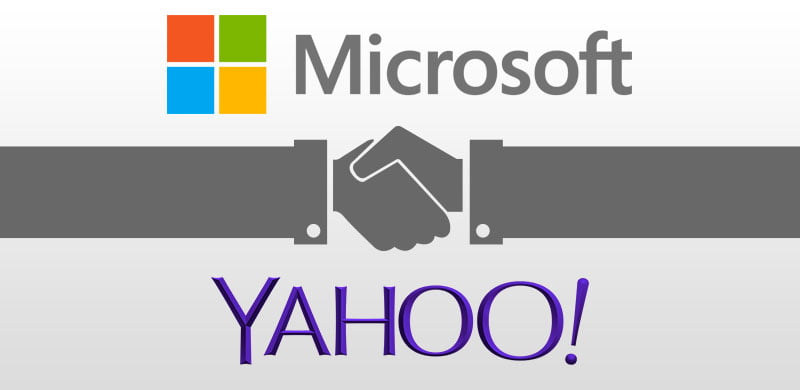Microsoft Corp.’s attempt to take over Yahoo Inc. has become so tortured it may help Internet search and advertising leader Google Inc. grow stronger, undermining Microsoft’s main reason for pursing the deal in the first place.
We find this to be a very advantageous situation for Google
Cantor Fitzgerald, analyst Derek Brown, said Thursday.
The longer this gets dragged out, the better for Google.
Yahoo signaled it is bracing for a protracted battle late Wednesday when an announcement and a media leak provided a glimpse at its labyrinthine search for alternatives to Microsoft’s bid of more than $40 billion.
The options included an experimental advertising alliance with Google that could lead to a broader partnership and, according to published reports, a combination with the online operations of Time Warner Inc.’s AOL. Google also owns a 5 percent stake in AOL.
As part of the AOL deal, Time Warner would get a roughly 20 percent stake in the merged entity in return for a substantial sum of cash that would help Yahoo buy back some of its stock at a price well above Microsoft’s offer, which was initially valued at $31 per share.
This is the first time that we have seen real feasible alternatives that could derail the Microsoft deal
Jeffrey Lindsay, Analyst Sanford C. Bernstein & Co.
Other analysts doubt Yahoo will succeed in thwarting Microsoft but believe it could force the world’s largest software maker to raise its offer as high as $35 per share, or about $50 billion.
But Microsoft made that threat before the details about Yahoo’s alternatives with Google and AOL emerged.
Although Microsoft has plenty of money to up the ante on its own, the Redmond, Wash.-based company may draw upon another deep pocket – Rupert Murdoch’s News Corp.
Under this reported scenario, News Corp. would contribute the Internet’s top social network, MySpace.com, and some cash in a Yahoo takeover. The proposed deal would put three of the Web’s most popular sites – Yahoo, MySpace and Microsoft’s MSN – under the same umbrella.
In another ironic twist, Google could benefit if Microsoft and News Corp. buy Yahoo because it already has a long-term contract to show ads on MySpace.
Microsoft, Time Warner and News Corp. all declined to comment Thursday. A Yahoo representative didn’t respond to inquiries about the AOL deal. Google and Yahoo announced their advertising test Wednesday.
Yahoo directors are expected to meet Friday to discuss the company’s options.
Investors seemed to welcome the latest developments. Yahoo shares rose 82 cents to $28.59 while Microsoft shares gained 22 cents to close at $29.11. The stocks of Google and Time Warner also moved up, while News Corp.’s Class A shares dipped 5 cents to $18.89.
The reported negotiations to bring together some of the world’s largest Web sites underscores the Internet’s maturation as a business sector. As consumers spend more time online, the smart money is following them – and now there’s a mad scramble to latch on to the prime properties in this promised land of future profit.
“The most likely outcome here is that a few players will become more and more dominant on the Internet,” said James Owers, a Georgia State University professor specializing in media and corporate finance.
The stakes are so high that News Corp. and AOL might decide to join forces if their latest negotiations with Microsoft and Yahoo don’t pan out, Citigroup analyst Jason Bazinet wrote in a Thursday note to investors.
Google has emerged as the Internet’s most profitable company so far, primarily by showing relevant text-based ad links alongside the billions of search results that it churns out each month.
Propelled by its success in search, Google built up a vast computer network that hosts a wide range of free services – many of which threaten to make Microsoft’s software less vital to consumers and businesses.
Microsoft believes Yahoo’s franchise will give it more weapons to retaliate against Google and reverse the losses that have plagued its online division.
But it’s looking less likely that Microsoft will be able to realize its goal of completing the Yahoo deal by the end of this year.
If Yahoo continues to resist, Microsoft probably will have to take its bid directly to shareholders – an acrimonious process that is typically settled at the target company’s annual meeting. Yahoo doesn’t have to hold its annual meeting until July 12.
And a deal done that late in the year isn’t likely to emerge from antitrust regulators’ purview until 2009, according to experts.
Yahoo may be able to rally support from its shareholders by pointing to the possibility of a long-term partnership with Google, which some analysts believe could boost Yahoo’s cash flow by 25 percent to 35 percent.
Google, too, could make more money from the alliance. But Lindsay doubts that’s the search leader’s main incentive for the tests.
“Anything that Google can do to keep Yahoo from going to Microsoft is good for Google,” Lindsay said.
If Yahoo turned over all its search-driven advertising to Google, it would face intense regulatory scrutiny that would be difficult to overcome, analysts predicted. Google controls 59 percent of the U.S. search market followed by Yahoo at 22 percent and Microsoft at 10 percent, according to comScore Media Metrix.
For now, Yahoo is allowing Google to show advertising links alongside no more than 3 percent of its U.S. search results and only for two weeks.
Microsoft already has signaled that it will strenuously object to antitrust regulators if Google sells search ads for Yahoo on a full-time basis. But a regulatory review might hurt Microsoft more than Google, Lindsay said, because it could mean waiting even longer to own Yahoo.
If Microsoft is able to pull off the Yahoo takeover, melding the two organizations will be difficult, especially if the deal is hostile or includes a third party like News Corp.
“The more complicated a deal gets, the more difficult it becomes to satisfy all parties,” Brown said. “And the more complicated the (post-deal) integration gets, the more it favors Google

